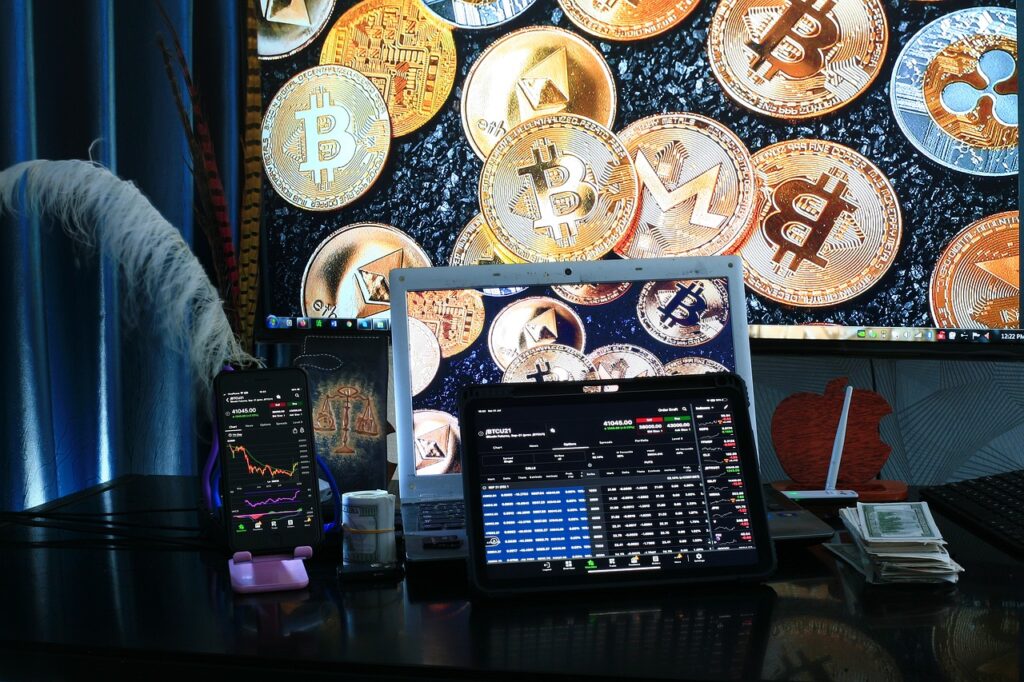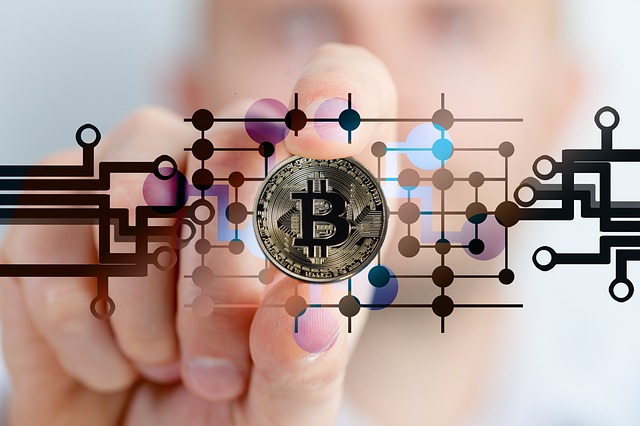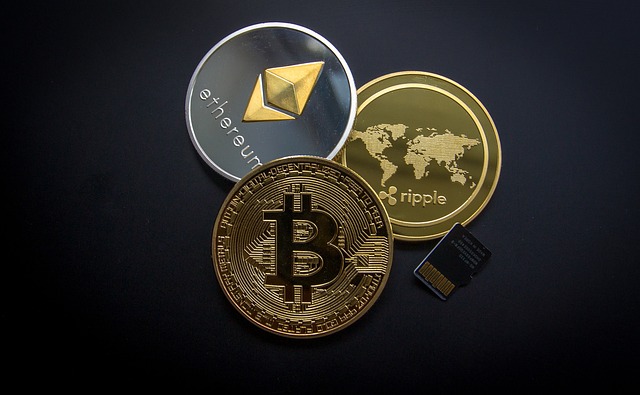Navigating the Layers of the Decentralized Finance System
Navigating the Layers of the Decentralized Finance System

The Basic Concepts of Decentralized Finance
Decentralized finance, also known as DeFi, is an emerging concept that aims to revolutionize the financial landscape. Unlike traditional finance, which relies heavily on intermediaries such as banks and other financial institutions, DeFi operates on a decentralized network. This means that transactions and financial activities are carried out directly between participants, without the need for intermediaries.
One fundamental concept of DeFi is the use of blockchain technology. This technology serves as the foundation upon which the entire decentralized finance system is built. Blockchain ensures that transactions are transparent, secure, and immutable. By utilizing blockchain, DeFi eliminates the need for trust in centralized authorities, making it a more inclusive and accessible financial system for everyone.
How Decentralized Finance Works
Decentralized finance, also known as DeFi, is a revolutionary system that aims to transform traditional financial services. It operates on a decentralized network, typically powered by blockchain technology, enabling users to access financial products and services without the need for intermediaries like banks or brokers. In simple terms, DeFi removes the middleman and allows individuals to transact directly with each other, creating a more inclusive and accessible financial ecosystem.
At the core of how decentralized finance works are smart contracts. These self-executing contracts are encoded on the blockchain and automatically execute predefined actions when certain conditions are met. For example, a smart contract can facilitate lending and borrowing by automating the approval and disbursement of funds based on predefined terms. Similarly, smart contracts can enable the creation and trading of digital assets, such as cryptocurrencies or tokenized representations of real-world assets. By eliminating the need for human intervention, smart contracts ensure transparency, efficiency, and trust in financial transactions within the decentralized finance system.
The Role of Blockchain Technology in Decentralized Finance
Blockchain technology plays a crucial role in the world of decentralized finance. At its core, blockchain is a distributed ledger that records and verifies transactions across a decentralized network of computers. This technology ensures transparency, security, and immutability within the decentralized finance system.
One of the fundamental advantages of blockchain in decentralized finance is its ability to eliminate the need for intermediaries. Traditional financial systems often rely on intermediaries such as banks or clearinghouses, which can introduce inefficiencies, delays, and additional costs. With blockchain, financial transactions can be conducted directly between parties, peer-to-peer, without the need for intermediaries. This not only streamlines the process but also reduces the risk of fraud or manipulation. By leveraging blockchain technology, decentralized finance aims to empower individuals by giving them greater control over their financial assets and transactions.
Exploring the Different Layers of the Decentralized Finance System
Decentralized finance, or DeFi, is an innovative approach to financial systems that operates on a decentralized infrastructure. It encompasses a diverse range of applications and platforms, each serving a specific purpose within the broader DeFi ecosystem.

At the base layer of DeFi lies the foundational technology of blockchain. This distributed ledger technology forms the backbone of the entire decentralized finance system, ensuring transparency, security, and immutability. By utilizing blockchain, DeFi applications eliminate the need for intermediaries, allowing for peer-to-peer transactions and reducing the risk of manipulation or fraud. The blockchain layer is crucial in maintaining the integrity and trustworthiness of the entire DeFi ecosystem, making it a fundamental building block for decentralized finance solutions.
Understanding Smart Contracts and their Importance in Decentralized Finance
Smart contracts play a crucial role in the world of decentralized finance. These self-executing agreements, powered by blockchain technology, are designed to automate and enforce the terms of a contract without the need for intermediaries. By eliminating the need for trust in the traditional sense, smart contracts provide a transparent and efficient way to conduct financial transactions.
One of the key reasons why smart contracts are important in decentralized finance is their ability to enable peer-to-peer transactions. With the help of smart contracts, individuals can engage in financial activities directly with each other, without relying on traditional financial institutions as intermediaries.

The Role of Decentralized Exchanges in the Decentralized Finance System
Decentralized exchanges play a crucial role in the decentralized finance system by providing a platform for users to trade cryptocurrencies and other digital assets without relying on intermediaries. Unlike traditional centralized exchanges, decentralized exchanges operate on blockchain technology, which ensures transparency, security, and immutability of transactions. Users have full control over their funds, as they can trade directly from their wallets without the need to deposit them into the exchange’s custody.
One of the key advantages of decentralized exchanges is that they eliminate the risks associated with centralized exchanges, such as hacking, theft, and regulatory concerns. By utilizing smart contracts, decentralized exchanges facilitate peer-to-peer trading, enabling users to interact directly with each other without the involvement of a third party. This not only enhances privacy but also reduces transaction costs and allows for faster settlement times. Moreover, decentralized exchanges contribute to the overall decentralization of the financial system, as they do not rely on a single point of failure and cannot be easily manipulated or shut down.
Exploring the World of Decentralized Lending and Borrowing
Decentralized lending and borrowing have emerged as key components of the rapidly growing world of decentralized finance. With the advent of blockchain technology, traditional lending and borrowing activities are being disrupted, allowing individuals to bypass intermediaries and engage in direct peer-to-peer transactions.
In this decentralized lending and borrowing landscape, individuals can lend out their digital assets and earn interest on their holdings. Similarly, borrowers can easily access funds by utilizing the assets they own as collateral. The use of smart contracts ensures transparency and trust in the lending and borrowing process, as all agreements are executed automatically without the need for intermediaries. This opens up opportunities for individuals who may not have been eligible for traditional loans to access capital, fostering financial inclusion. Overall, decentralized lending and borrowing offer exciting possibilities for individuals to leverage their assets and participate in a truly decentralized financial ecosystem.
The Importance of Decentralized Stablecoins in the Decentralized Finance System
The world of decentralized finance (DeFi) is rapidly growing, and one of the essential components of this ecosystem is decentralized stablecoins. These digital currencies are designed to maintain a stable value, making them a reliable store of value and medium of exchange within the DeFi system. Unlike traditional cryptocurrencies like Bitcoin, which can be highly volatile, decentralized stablecoins provide stability and mitigate the risks associated with price fluctuations. They offer users a secure and efficient way to transact without the fear of their assets losing value.
Decentralized stablecoins also play a crucial role in enabling efficient lending and borrowing within the DeFi system. By providing a stable unit of account, they allow users to accurately measure the value of their assets and calculate interest rates. This stability attracts both lenders and borrowers, as it guarantees that the loan terms will not be affected by sudden price changes. Moreover, decentralized stablecoins enable borrowers to access liquidity without the need for traditional financial intermediaries, removing the barriers and restrictions that often come with centralized lending institutions. This opens up opportunities for individuals and businesses who may not have access to traditional banking services to access much-needed capital and participate in the DeFi ecosystem.
The Potential Risks and Challenges of Decentralized Finance
Decentralized finance, with all its promises and opportunities, does not come without its fair share of risks and challenges. One of the foremost concerns is the lack of regulation in the decentralized finance ecosystem. Unlike traditional financial systems that are bound by strict regulatory frameworks, the decentralized finance space operates in a relatively unregulated environment. While this may be seen as a positive aspect by some enthusiasts, it opens the door to potential scams, frauds, and unscrupulous activities. Without proper oversight, it becomes challenging to safeguard the interests of users and ensure the integrity of the system.
Another significant challenge that decentralized finance faces is the issue of scalability. As more users flock to decentralized platforms and indulge in various financial activities, the underlying blockchain technology may struggle to cope with the increasing demand. This can result in slow transaction times and high fees, hindering the overall user experience. Moreover, the complexity of decentralized finance systems may deter mainstream adoption, as it requires users to have a certain level of technical expertise. Simplifying the user interface and enhancing scalability will be crucial for the widespread acceptance and growth of decentralized finance in the future.
• Lack of regulation: The decentralized finance ecosystem operates in an unregulated environment, which can lead to potential scams, frauds, and unscrupulous activities.
• Safeguarding user interests: Without proper oversight, it becomes challenging to protect the interests of users and ensure the integrity of the system.
• Scalability issues: As more users join decentralized platforms, the underlying blockchain technology may struggle to handle the increasing demand. This can result in slow transaction times and high fees.
• Hindrance to mainstream adoption: The complexity of decentralized finance systems may deter mainstream users who do not have a certain level of technical expertise.
• Simplifying user interface: Enhancing scalability and simplifying the user interface will be crucial for widespread acceptance and growth of decentralized finance.
The Future of Decentralized Finance
The future of decentralized finance holds great promise for the global financial landscape. As more individuals and institutions recognize the advantages of DeFi, we can expect its continued growth and widespread adoption. One of the key aspects that will shape the future of DeFi is interoperability. As different blockchain networks and protocols emerge, the ability to seamlessly connect and exchange value between them will be crucial.

Another important aspect to consider is the regulatory landscape. As DeFi platforms gain more popularity and attract larger user bases, regulators around the world will likely take notice. Striking the right balance between innovation and investor protection will be a significant challenge, but it is essential for the sustainable development of decentralized finance. As regulators and industry participants collaborate to create a clear and transparent framework, it will foster greater confidence among users and ensure the long-term viability of DeFi. The future of decentralized finance is undoubtedly exciting, and it will undoubtedly continue to reshape the way we interact with financial services.
What is decentralized finance?
Decentralized finance, also known as DeFi, refers to financial systems that operate on blockchain technology and aim to provide open, transparent, and decentralized alternatives to traditional financial intermediaries.
How does decentralized finance work?
Decentralized finance works by utilizing smart contracts on blockchain platforms to automate and execute financial transactions without the need for intermediaries. This allows for direct peer-to-peer transactions, lower fees, increased transparency, and greater accessibility.
What is the role of blockchain technology in decentralized finance?
Blockchain technology forms the underlying infrastructure of decentralized finance. It ensures the immutability, security, and transparency of financial transactions, as well as enables the creation and execution of smart contracts without relying on centralized authorities.
What are the different layers of the decentralized finance system?
The decentralized finance system consists of various layers, including the blockchain layer, the smart contract layer, the decentralized exchange layer, and the decentralized lending and borrowing layer. Each layer contributes to the overall functioning of DeFi.
Why are smart contracts important in decentralized finance?
Smart contracts are self-executing agreements programmed on the blockchain that automatically execute transactions and enforce the agreed-upon terms without the need for intermediaries. They ensure transparency, security, and efficiency in decentralized finance.
What is the role of decentralized exchanges in the decentralized finance system?
Decentralized exchanges, or DEXs, allow users to trade digital assets directly with each other without relying on a centralized intermediary. They provide greater control, privacy, and security to users by eliminating the need to trust a third party with custody of their assets.
What is decentralized lending and borrowing?
Decentralized lending and borrowing refers to the practice of lending and borrowing digital assets directly between individuals on decentralized platforms, facilitated by smart contracts. It eliminates the need for traditional financial intermediaries and opens up new opportunities for accessing capital and earning interest.
Why are decentralized stablecoins important in decentralized finance?
Decentralized stablecoins are cryptocurrencies designed to maintain a stable value by pegging them to an underlying asset, such as a fiat currency or a basket of assets. They provide stability and serve as a medium of exchange within the decentralized finance system.
What are the potential risks and challenges of decentralized finance?
Some potential risks and challenges of decentralized finance include smart contract vulnerabilities, regulatory uncertainties, potential for hacking or security breaches, scalability issues, and the need for user education to ensure responsible use of DeFi platforms.
What does the future hold for decentralized finance?
The future of decentralized finance is promising. As technology advances and adoption increases, we can expect to see improved scalability, enhanced security measures, increased integration with traditional financial systems, and the emergence of innovative DeFi applications and services.
Todays Featured Product:
Buy, exchange and grow your crypto securely with a Ledger hardware wallet, combined with the Ledger Live app. It’s never been easier to keep your crypto safe and accessible. Buy direct from Ledger.com and get todays Special Offers Here.




